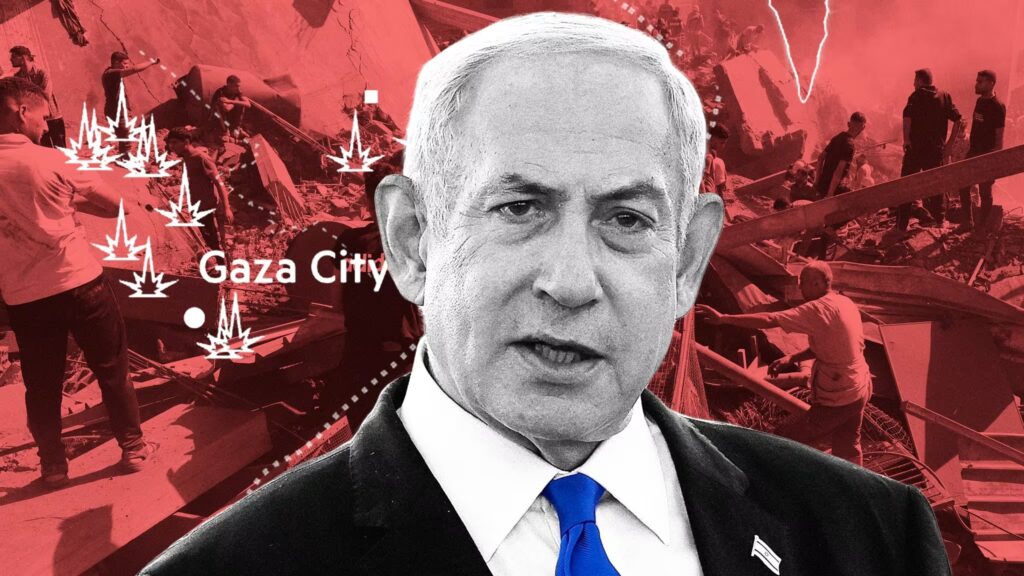Israeli Prime Minister Benjamin Netanyahu has reaffirmed his government’s intention to establish full security control over the Gaza Strip. Speaking during the ongoing military campaign known as Operation Gideon’s Chariots, Netanyahu declared that Israeli forces will not stop until they have secured the entire region. The announcement comes amid intensified military strikes against Hamas positions across Gaza.
Military Campaign Targets Hamas Strongholds
The Israeli military continues its offensive, focusing on what officials describe as critical Hamas infrastructure, including tunnels, weapons stockpiles, and command centers. According to Netanyahu, the Israel Defense Forces (IDF) have been conducting “intense and precise” operations throughout the densely populated coastal enclave.
“We are moving forward with determination,” said Netanyahu. “Our troops are advancing step by step and striking with force.”
The IDF confirmed that dozens of airstrikes were carried out overnight. These strikes reportedly targeted areas believed to house militant operations, though civilian casualties have not yet been officially reported.
Israel Signals Openness to Temporary Ceasefire
Despite the ongoing operation, Netanyahu indicated that Israel is open to a temporary ceasefire if the conditions are right. However, he stressed that any pause in the fighting would not affect the overall goal of the military campaign.
“We are prepared for a tactical ceasefire, if needed for humanitarian reasons,” Netanyahu said. “But our mission remains unchanged: to remove the threat posed by Hamas and restore full security control.”
A government spokesperson later clarified that any ceasefire would be short-term and conditional, aimed at allowing aid to reach civilians or facilitating hostage negotiations.
Gaza Campaign Marks Strategic Shift
Operation Gideon’s Chariots represents a new phase in Israel’s military strategy in Gaza. Unlike previous operations, which focused on limited objectives, this campaign aims for long-term control and the dismantling of militant networks.
Military analysts suggest that this operation could reshape the balance of power in the region.
“This is not just about deterrence,” said Dr. Eli Karmon, a senior fellow at the International Institute for Counter-Terrorism. “It’s about fundamentally changing the security dynamic between Israel and Gaza.”
International Reactions and Humanitarian Concerns
While Israel continues its operations, international calls for de-escalation are growing louder. The United Nations and several European governments have urged both sides to protect civilians and respect humanitarian law.
Aid groups report that the situation in Gaza is worsening, with limited access to food, water, and medical supplies. The Israeli government has pledged to allow humanitarian aid through designated corridors during temporary pauses, though these plans remain fluid and subject to security assessments.
Netanyahu has made it clear that Israel’s endgame is full territorial and security control over Gaza. This stance reflects a hardening of policy in response to Hamas’s persistent rocket attacks and cross-border raids.
“We will not allow Gaza to remain a launching pad for terrorism,” Netanyahu stated. “Our people deserve peace and safety.”
Critics warn that prolonged military control of Gaza could draw Israel into a costly and open-ended occupation. However, supporters argue that a firm hand is necessary to prevent future violence.
As Operation Gideon’s Chariots continues, the conflict in Gaza remains highly volatile. Israel has made clear that its military campaign will not end until its strategic objectives are met. While the possibility of a ceasefire exists, the pursuit of full security control over Gaza remains at the center of Netanyahu’s plan.
